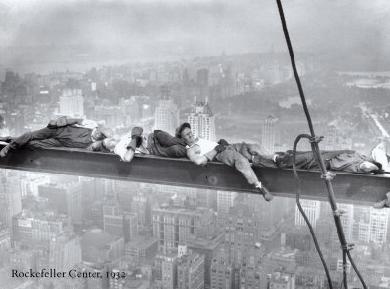
Candida Martinelli's Italophile Site

Main
Page This family-friendly site celebrates Italian culture for the enjoyment of children and
adults. Site-Overview
An
account of an Italian immigrant to America, related in the book Twilight
in Italy, by D. H. Lawrence, 1916
(ed.: The account begins with the meeting in an Italian village of
Giovanni’s father, mother, wife and baby in a small café.
Then Mr. Lawrence and his friends meet the son, Giovanni, of whom
his father has spoken so highly, and boasted of Giovanni's ability to
speak English.)
Soon
Giovanni came home, and took his cornet upstairs. Then he came to see us.
He was an ingenuous youth, sordidly shabby and dirty.
His fair hair was long and uneven, his very high starched collar
made one aware that his neck and his ears were not clean, his American
crimson tie was ugly, his clothes looked as if they had been kicking
about on the floor for a year.
Yet
his blue eyes were warm and his manner and speech very gentle.
'You
will speak English with us,' I said.
'Oh,'
he said, smiling and shaking his head, 'I could speak English very well.
But it is two years that I don't speak it now, over two years
now, so I don't speak it.'
'But
you speak it very well.'
'No.
It is two years that I have not spoke, not a word--so, you see, I
have--'
'You
have forgotten it? No, you haven't.
It will quickly come back.'
'If
I hear it--when I go to America--then I shall--I shall--'
'You
will soon pick it up.'
'Yes--I
shall pick it up.'
The
landlord, who had been watching with pride, now went away.
The wife also went away, and we were left with the shy, gentle,
dirty, and frowsily-dressed Giovanni.
He
laughed in his sensitive, quick fashion.
'The
women in America, when they came into the store, they said, "Where
is John, where is John?" Yes, they liked me.'
And
he laughed again, glancing with vague, warm blue eyes, very shy, very
coiled upon himself with sensitiveness.
He
had managed a store in America, in a smallish town. I glanced at his reddish, smooth, rather knuckly hands, and
thin wrists in the frayed cuff. They
were real shopman's hands.
The
landlord brought some special feast-day cake, so overjoyed he was to
have his Giovanni speaking English with the Signoria.
When
we went away, we asked 'John' to come down to our villa to see us.
We scarcely expected him to turn up.
Yet
one morning he appeared, at about half past nine, just as we were
finishing breakfast. It was
sunny and warm and beautiful, so we asked him please to come with us
picnicking.
He
was a queer shoot, again, in his unkempt longish hair and slovenly
clothes, a sort of very vulgar down-at-heel American in appearance.
And he was transported with shyness.
Yet ours was the world he had chosen as his own, so he took his
place bravely and simply, a hanger-on.
We
climbed up the water-course in the mountain-side, up to a smooth little
lawn under the olive trees, where daisies were flowering and gladioli
were in bud. It was a tiny
little lawn of grass in a level crevice, and sitting there we had the
world below us--the lake, the distant island, the far-off low Verona
shore.
Then
'John' began to talk, and he talked continuously, like a foreigner, not
saying the things he would have said in Italian, but following the
suggestion and scope of his limited English.
In
the first place, he loved his father--it was 'my father, my father'
always. His father had a
little shop as well as the inn in the village above.
So John had had some education. He had been sent to Brescia and then to Verona to school, and
there had taken his examinations to become a civil engineer.
He was clever, and could pass his examinations.
But he never finished his course.
His mother died, and his father, disconsolate, had wanted him at
home. Then he had gone
back, when he was sixteen or seventeen, to the village beyond the lake,
to be with his father and to look after the shop.
'But
didn't you mind giving up all your work?' I said.
He
did not quite understand.
'My
father wanted me to come back,' he said.
It
was evident that Giovanni had had no definite conception of what he was
doing or what he wanted to do. His
father, wishing to make a gentleman of him, had sent him to school in
Verona. By accident he had
been moved on into the engineering course.
When it all fizzled to an end, and he returned half-baked to the
remote, desolate village of the mountain-side, he was not disappointed
or chagrined. He had never conceived of a coherent purposive life.
Either one stayed in the village, like a lodged stone, or one
made random excursions into the world, across the world.
It was all aimless and purposeless.
So
he had stayed a while with his father, then he had gone, just as
aimlessly, with a party of men who were emigrating to America. He had taken some money, had drifted about, living in the
most comfortless, wretched fashion, then he had found a place somewhere
in Pennsylvania, in a dry goods store.
This was when he was seventeen or eighteen years old.
All
this seemed to have happened to him without his being very much
affected, at least consciously. His
nature was simple and self-complete.
Yet not so self-complete as that of Il Duro or Paolo.
They had passed through the foreign world and been quite
untouched. Their souls were
static, it was the world that had flowed unstable by.
But
John was more sensitive, he had come more into contact with his new
surroundings. He had
attended night classes almost every evening, and had been taught English
like a child. He had loved
the American free school, the teachers, the work.
But
he had suffered very much in America.
With his curious, over-sensitive, wincing laugh, he told us how
the boys had followed him and jeered at him, calling after him, 'You
damn Dago, you damn Dago.' They had stopped him and his friend in the
street and taken away their hats, and spat into them.
So that at last he had gone mad.
They were youths and men who always tortured him, using bad
language which startled us very much as he repeated it, there on the
little lawn under the olive trees, above the perfect lake: English
obscenities and abuse so coarse and startling that we bit our lips,
shocked almost into laughter, whilst John, simple and natural, and
somehow, for all his long hair and dirty appearance, flower-like in
soul, repeated to us these things which may never be repeated in decent
company.
'Oh,'
he said, 'at last, I get mad. When
they come one day, shouting, "You damn Dago, dirty dog," and
will take my hat again, oh, I get mad, and I would kill them, I would
kill them, I am so mad. I
run to them, and throw one to the floor, and I tread on him while I go
upon another, the biggest. Though
they hit me and kick me all over, I feel nothing, I am mad.
I throw the biggest to the floor, a man; he is older than I am,
and I hit him so hard I would kill him.
When the others see it they are afraid, they throw stones and hit
me on the face. But I don't
feel it--I don't know nothing. I
hit the man on the floor, I almost kill him.
I forget everything except I will kill him--'
'But
you didn't?'
'No--I
don't know--' and he laughed his queer, shaken laugh. 'The other man that was with me, my friend, he came to me and
we went away. Oh, I was
mad. I was completely mad.
I would have killed them.'
He
was trembling slightly, and his eyes were dilated with a strange greyish-blue
fire that was very painful and elemental.
He looked beside himself. But
he was by no means mad.
We
were shaken by the vivid, lambent excitement of the youth, we wished him
to forget. We were shocked,
too, in our souls to see the pure elemental flame shaken out of his
gentle, sensitive nature. By
his slight, crinkled laugh we could see how much he had suffered.
He had gone out and faced the world, and he had kept his place,
stranger and Dago though he was.
'They
never came after me no more, not all the while I was there.'
Then
he said he became the foreman in the store--at first he was only
assistant. It was the best
store in the town, and many English ladies came, and some Germans. He liked the English ladies very much: they always wanted him
to be in the store. He wore
white clothes there, and they would say:
'You
look very nice in the white coat, John'; or else:
'Let
John come, he can find it'; or else they said:
'John
speaks like a born American.'
This
pleased him very much.
In
the end, he said, he earned a hundred dollars a month.
He lived with the extraordinary frugality of the Italians, and
had quite a lot of money.
He
was not like Il Duro. Faustino
had lived in a state of miserliness almost in America, but then he had
had his debauches of shows and wine and carousals.
John went chiefly to the schools, in one of which he was even
asked to teach Italian. His
knowledge of his own language was remarkable and most unusual!
'But
what,' I asked, 'brought you back?'
'It
was my father. You see, if
I did not come to have my military service, I must stay till I am forty.
So I think perhaps my father will be dead, I shall never see him.
So I came.'
He
had come home when he was twenty to fulfill his military duties.
At home he had married. He
was very fond of his wife, but he had no conception of love in the old
sense. His wife was like
the past, to which he was wedded. Out
of her he begot his child, as out of the past.
But the future was all beyond her, apart from her.
He was going away again, now, to America.
He had been some nine months at home after his military service
was over. He had no more to
do. Now he was leaving his
wife and child and his father to go to America.
'But
why,' I said, 'why? You are not poor, you can manage the shop in your
village.'
'Yes,'
he said. 'But I will go to
America. Perhaps I shall go
into the store again, the same.'
'But
is it not just the same as managing the shop at home?'
'No--no--it
is quite different.'
Then
he told us how he bought goods in Brescia and in Said for the shop at
home, how he had rigged up a funicular with the assistance of the
village, an overhead wire by which you could haul the goods up the face
of the cliffs right high up, to within a mile of the village.
He was very proud of this. And
sometimes he himself went down the funicular to the water's edge, to the
boat, when he was in a hurry. This
also pleased him.
But
he was going to Brescia this day to see about going again to America.
Perhaps in another month he would be gone.
It
was a great puzzle to me why he would go.
He could not say himself. He
would stay four or five years, then he would come home again to see his
father--and his wife and child.
There
was a strange, almost frightening destiny upon him, which seemed to take
him away, always away from home, from the past, to that great, raw
America. He seemed scarcely
like a person with individual choice, more like a creature under the
influence of fate which was disintegrating the old life and
precipitating him, a fragment inconclusive, into the new chaos.
He
submitted to it all with a perfect unquestioning simplicity, never even
knowing that he suffered, that he must suffer disintegration from the
old life. He was moved
entirely from within, he never questioned his inevitable impulse.
'They
say to me, "Don't go--don't go"--' he shook his head.
'But I say I will go.'
And
at that it was finished.
So
we saw him off at the little quay, going down the lake.
He would return at evening, and be pulled up in his funicular
basket. And in a month's
time he would be standing on the same lake steamer going to America.
Nothing
was more painful than to see him standing there in his degraded, sordid
American clothes, on the deck of the steamer, waving us good-bye,
belonging in his final desire to our world, the world of consciousness
and deliberate action. With
his candid, open, unquestioning face, he seemed like a prisoner being
conveyed from one form of life to another, or like a soul in trajectory,
that has not yet found a resting-place.
What
were wife and child to him?--they were the last steps of the past.
His father was the continent behind him; his wife and child the
foreshore of the past; but his face was set outwards, away from it
all--whither, neither he nor anybody knew, but he called it America. My list of books by and about D. H. Lawrence
Also see my pages: John, Italian
Emigrant, by D. H. Lawrence Joe
Petrosino, NYC Pioneer Policeman Rivesville, West Virginia, R.T.
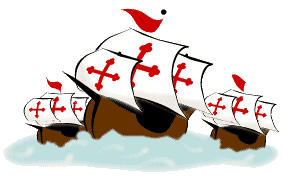
JOHN
![]()
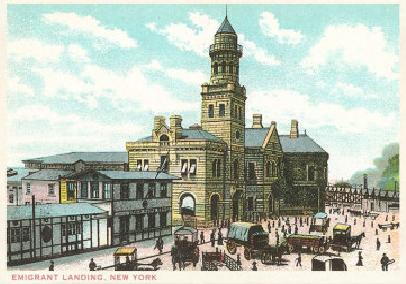
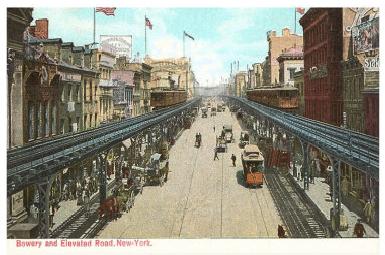
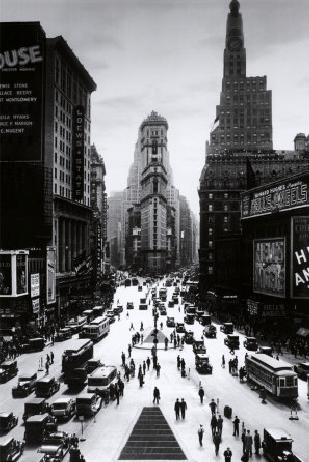

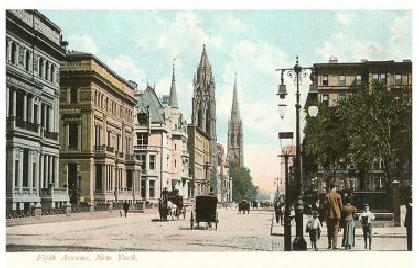
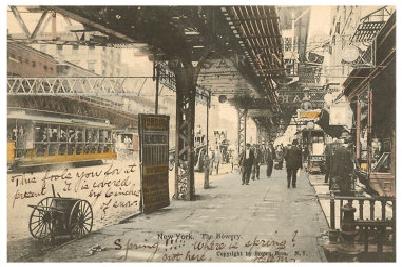

![]()
Lunch Atop a Skyscraper, 1932
